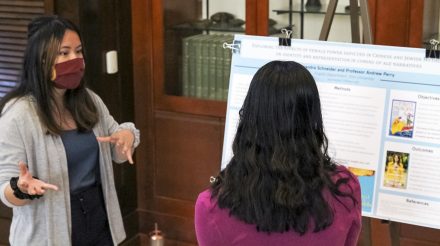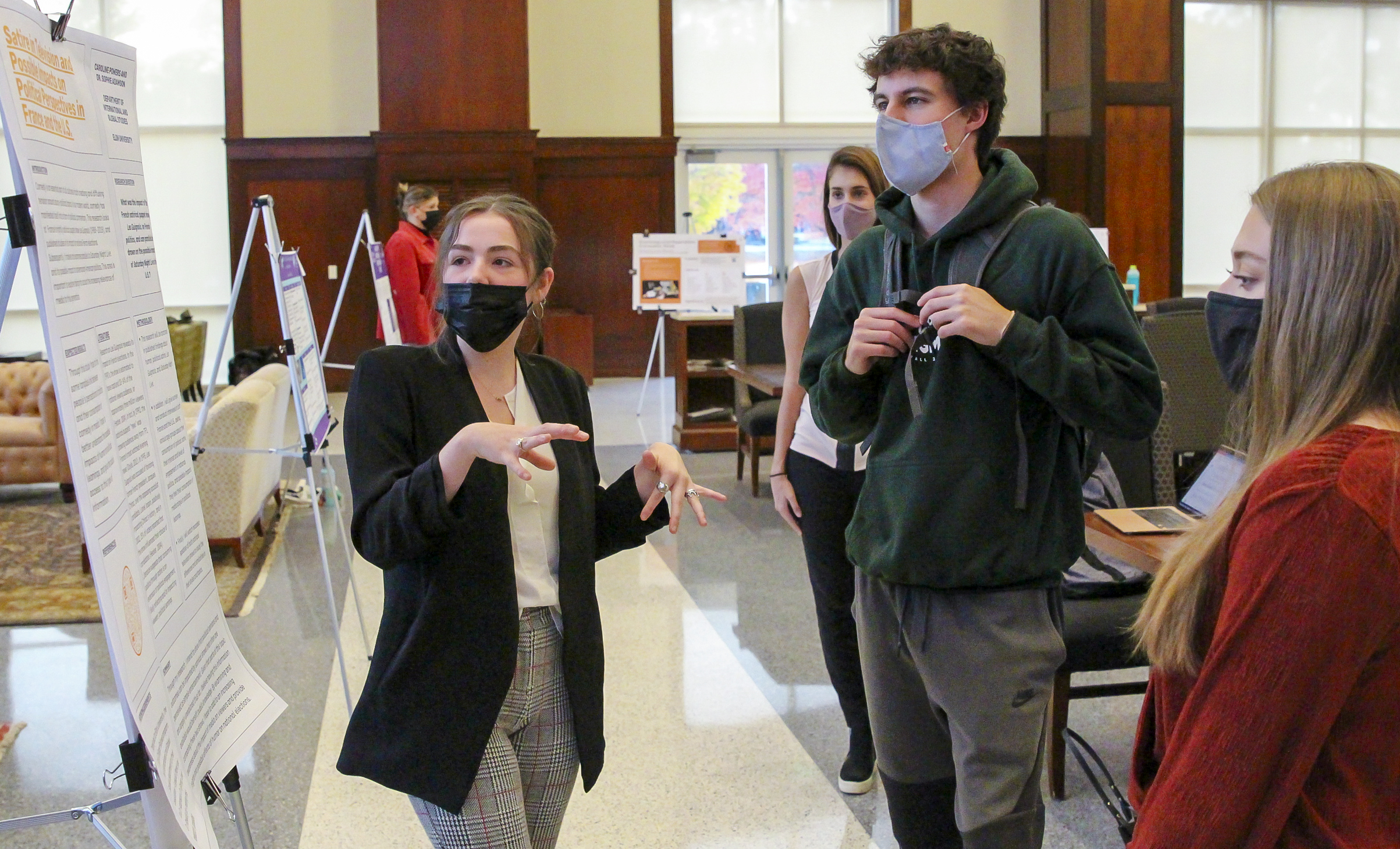The annual event gives junior-year Elon College Fellows the opportunity to present their proposed research and model the process of sophomore Fellows.
From the personal and political, to the timely and timeless, junior Elon College Fellows’ research proposals filled the Great Hall this week in an annual demonstration of the research process and celebration of the liberal arts.
Their questions spark curiosity. How do we combat vaccine misinformation within the medical community? How does satire influence political outcomes? How do gender stereotypes influence performing arts, and how do the arts perpetuate them?

Elon College Fellows is a four-year scholarship program that fosters deep exploration of the breadth, connections and relevance of the arts and sciences. One of the program’s pillars is the completion of a closely mentored, two-year research project in students’ senior year. Those projects often lead to conference presentations and publications.
Each fall, third-year Fellows present posters outlining their proposed research projects for their sophomore colleagues. The event models the process for developing scholars and acts as an important milestone in juniors’ research.
“It’s a big process for all of us,” said Caroline Powers ’23, an International and Global Studies major. Powers will spend the next two years comparing the effects of satirical comedy on French and U.S. politics with Associate Professor of French Sophie Adamson. That will include a semester abroad in Paris this spring.
“It’s interesting to see how research builds from point to point,” Powers said. “Even though things are still changing — we developed this question in a meeting last week —I’m surprised at how far it’s come. Just making this poster feels impressive and it’s been fun to do.”

Alexandra Schneider ’23 is working with Associate Professor of English Andrew Perry to examine female power in Chinese and Jewish mythology. Drawing from her own identity as an Asian Jew, the creative writing and strategic communications double major will develop works of fiction, non-fiction and poetry based on her examination of two cultures’ myths and speculative fiction.
“I’m looking at how to represent my own identity but also share it with the world in a relatable way,” Schneider said. “Last year, I was anxious all the time. Now, three months later, I have this poster! I would not be anywhere without Dr. Perry.”
Trevor Kirk ’23 also felt intimidated during his sophomore year. With Assistant Professor of English Travis Maynard, he will examine the sources and spread of COVID-19 vaccine misinformation among healthcare workers. A professional writing and rhetoric major, Kirk arrived at Elon planning for medical school. Realizing that wasn’t his calling, he turned his interest in medicine toward a potential career in medical writing.
“It feels so intangible when you look ahead,” Kirk said of the research process. “But building up to creating this poster and applying for the Leadership Prize helped me focus my ideas and plan this process.”

Kim Epting, Elon College Fellows director and professor of psychology, said the annual event is meaningful to students and faculty.
“Research is a lot of hard work, but it’s not as difficult as students often imagine it to be. Juniors are often surprised to see their growth in such a short amount of time. That’s part of our gratification as mentors: Seeing their growth and seeing them recognize that growth.”
Housed within Elon College, the College of Arts and Sciences, each of the College Fellows’ four years is marked by academic rigor and achievement. First-year Fellows explore the three branches. Sophomores declare majors, choose mentors and an area of research. Juniors hone their research topic and methodology, publicly presenting results during their senior year.



